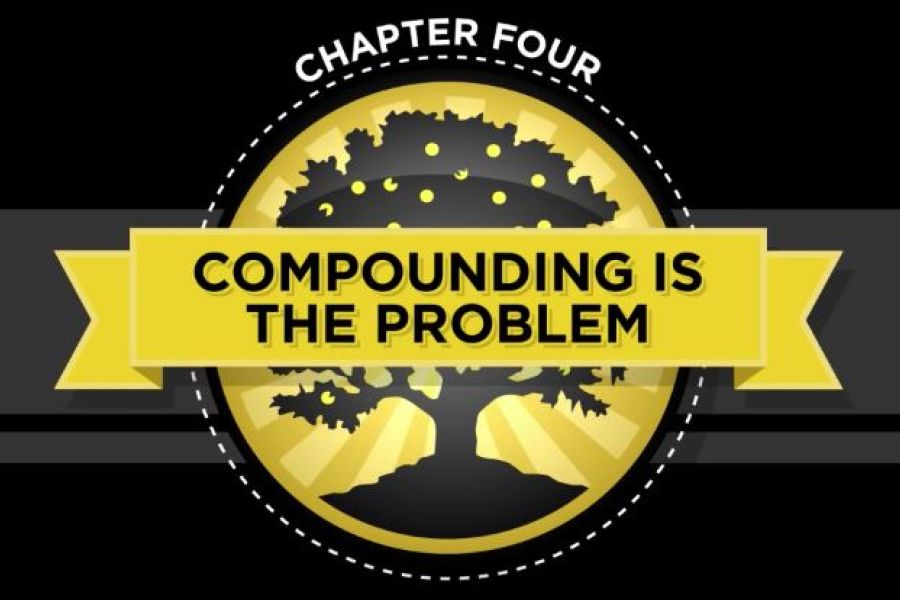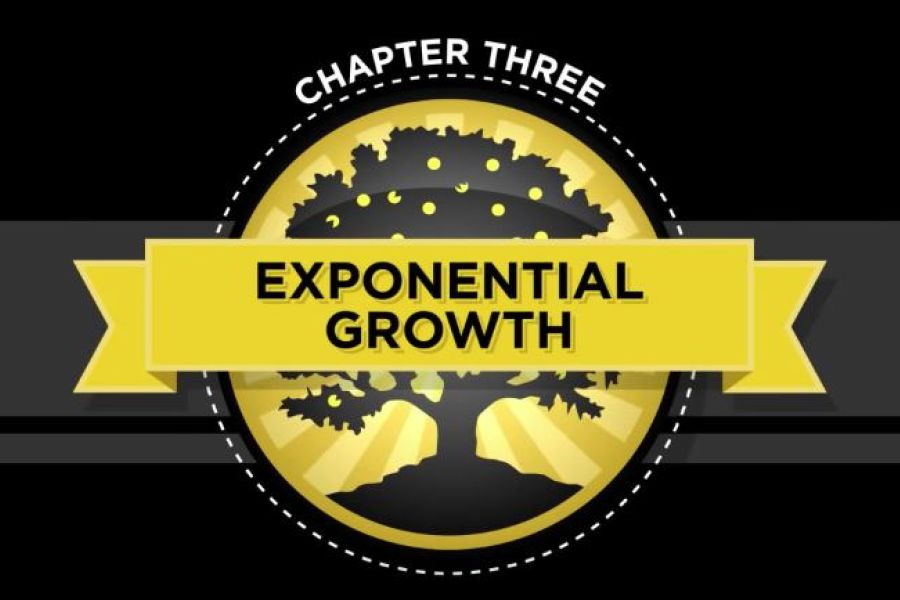As posted on the Peak Prosperity.com and the Chris Martenson's Peak Prosperity YouTube Channel Background The Crash Course has provided millions of viewers with the context for the massive changes now underway, as economic growth as we've known it is ending due to depleting resources. But it also offers real hope. Those individuals who take informed action today, while we still have time, can lower their exposure to these coming trends -- and even discover a better way of life in the process. In this Blog, I am presenting the 27 (inclusive of the introduction) installments of The Crash Course, one per week. Previous installments of "The Crash Course" can be found here: Blog (#311) Introducing "The Crash Course" Blog (#314) Chapter 1: Three Beliefs Blog (#319) Chapter 2: "The Three 'Es'" Blog...

It’s not uncommon for businesses to sometimes generate tax losses. But the losses that can be deducted are limited by tax law in some situations. The Tax Cuts and Jobs Act of 2017 (TCJA) further restricts the amount of losses that sole proprietors, partners, S corporation shareholders and, typically, limited liability company (LLC) members can currently deduct — beginning in 2018. This could negatively impact owners of start-ups and businesses facing adverse conditions. Before the TCJA Under pre-TCJA law, an individual taxpayer’s business losses could usually be fully deducted in the tax year when they arose unless: The passive activity loss (PAL) rules or some other provision of tax law limited that favorable outcome, or The business loss was so large that it exceeded taxable income from...
In many parts of the country, summer is peak season for selling a home. If you’re planning to put your home on the market soon, you’re probably thinking about things like how quickly it will sell and how much you’ll get for it. But don’t neglect to consider the tax consequences. Home sale gain exclusion The U.S. House of Representatives’ original version of the Tax Cuts and Jobs Act of 2017 (TCJA) included a provision tightening the rules for the home sale gain exclusion. Fortunately, that provision didn’t make it into the final version that was signed into law. As a result, if you’re selling your principal residence, there’s still a good chance you’ll be able to exclude up to $250,000 ($500,000 for joint filers) of gain. Gain...
As posted on the Peak Prosperity.com and the Chris Martenson's Peak Prosperity YouTube Channel Background The Crash Course has provided millions of viewers with the context for the massive changes now underway, as economic growth as we've known it is ending due to depleting resources. But it also offers real hope. Those individuals who take informed action today, while we still have time, can lower their exposure to these coming trends -- and even discover a better way of life in the process. In this Blog, I am presenting the 27 (inclusive of the introduction) installments of The Crash Course, one per week. Previous installments of "The Crash Course" can be found here: Blog (#311) Introducing "The Crash Course" Blog (#314) Chapter 1: Three Beliefs Blog (#319) Chapter 2: "The Three 'Es'" Chapter 3...
The Tax Cuts and Jobs Act of 2017 (TCJA) has caused some changes in the area of home mortgage interest deductions. While a good amount of existing homeowners will not be impacted due to grandfather provisions that keep certain prior-law rules in place, other homeowners will be negatively impacted by a new provision that generally disallows interest deductions for home equity loans for tax years 2018-2025. This Tax Planning Letter outlines what you need to be aware of regarding TCJA’s impact on home mortgage interest deductions. TABLE OF CONTENTS HOME MORTGAGE INTEREST: Pre-TCJA HOME MORTGAGE INTEREST: TCJA "Home acquisition indebtedness" under TCJA "Home equity indebtedness" under TCJA $1 million of "home acquisition indebtedness" grandfather rules under TCJA Taxpayers who can disregard TCJA changes HOME MORTGAGE INTEREST: Pre-TCJA Prior to TCJA, a taxpayer was allowed...
At this time of year, a summer vacation is on many people’s minds. If you travel for business, combining a business trip with a vacation to offset some of the cost with a tax deduction can sound appealing. But tread carefully, or you might not be eligible for the deduction you’re expecting. General rules Business travel expenses are potentially deductible if the travel is within the United States and the expenses are “ordinary and necessary” and directly related to the business. (Foreign travel expenses may also be deductible, but stricter rules apply than are discussed here.) Currently, business owners and the self-employed are potentially eligible to deduct business travel expenses. Under the Tax Cuts and Jobs Act, employees can no longer deduct such expenses. The potential deductions...
If you received a large refund after filing your 2017 income tax return, you’re probably enjoying the influx of cash. But a large refund isn’t all positive. It also means you were essentially giving the government an interest-free loan. That’s why a large refund for the previous tax year would usually indicate that you should consider reducing the amounts you’re having withheld (and/or what estimated tax payments you’re making) for the current year. But 2018 is a little different. The TCJA and withholding To reflect changes under the Tax Cuts and Jobs Act (TCJA) — such as the increase in the standard deduction, suspension of personal exemptions and changes in tax rates and brackets — the IRS updated the withholding tables that indicate how much employers should hold...
IRS examiners use Audit Techniques Guides (ATGs) to prepare for audits — and so can small business owners. Many ATGs target specific industries, such as construction. Others address issues that frequently arise in audits, such as executive compensation and fringe benefits. These publications can provide valuable insights into issues that might surface if your business is audited. What do ATGs cover? The IRS compiles information obtained from past examinations of taxpayers and publishes its findings in ATGs. Typically, these publications explain: The nature of the industry or issue, Accounting methods commonly used in an industry, Relevant audit examination techniques, Common and industry-specific compliance issues, Business practices, Industry terminology, and Sample interview questions. By using a specific ATG, an examiner may, for example, be able to reconcile discrepancies...
- 1
- 2
- 3
- 4
- 5
- 6
- 7
- 8
- 9
- 10
- 11
- 12
- 13
- 14
- 15
- 16
- 17
- 18
- 19
- 20
- 21
- 22
- 23
- 24
- 25
- 26
- 27
- 28
- 29
- 30
- 31
- 32
- 33
- 34
- 35
- 36
- 37
- 38
- 39
- 40
- 41
- 42
- 43
- 44
- 45
- 46
- 47
- 48
- 49
- 50
- 51
- 52
- 53
- 54
- 55
- 56
- 57
- 58
- 59
- 60
- 61
- 62
- 63
- 64
- 65
- 66
- 67
- 68
- 69
- 70
- 71
- 72
- 73
- 74
- 75
- 76
- 77
- 78
- 79
- 80
- 81
- 82
- 83
- 84
- 85
- 86
- 87
- 88
- 89
- 90
- 91
- 92
- 93
- 94
- 95
- 96
- 97
- 98
- 99
- 100
- 101
- 102
- 103
- 104
- 105
- 106
- 107
- 108
- 109
- 110
- 111
- 112
- 113
- 114
- 115
- 116
- 117
- 118
- 119
- 120
- 121
- 122
- 123
- 124
- 125
- 126
- 127
- 128
- 129
- 130
- 131
- 132
- 133
- 134
- 135
- 136
- 137
- 138
- 139
- 140
- 141
- 142
- 143
- 144
- 145
- 146
- 147
- 148
- 149
- 150
- 151











